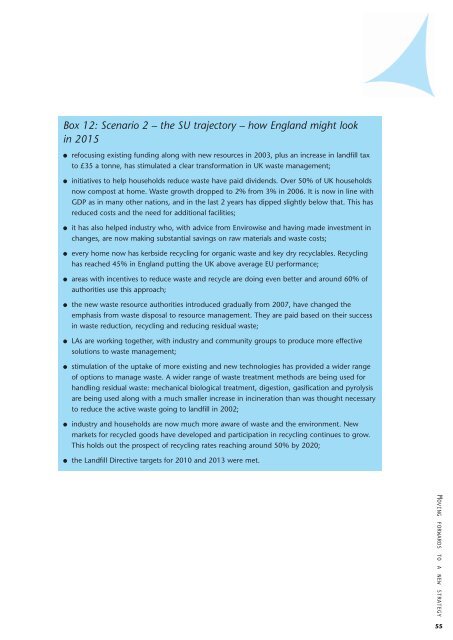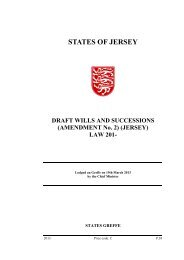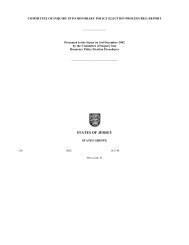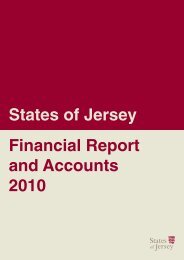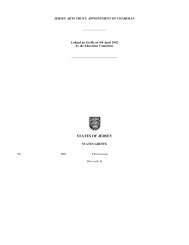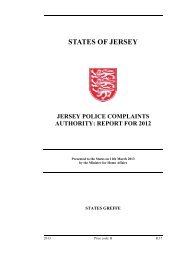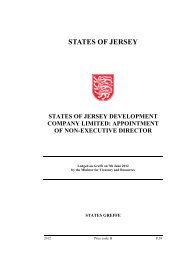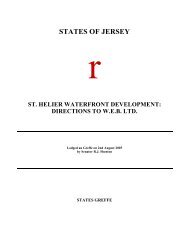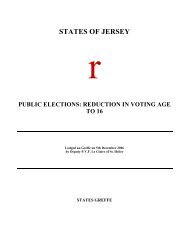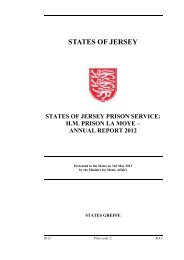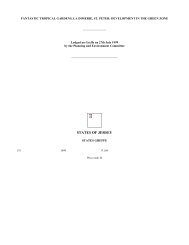Waste not want not - States Assembly
Waste not want not - States Assembly
Waste not want not - States Assembly
You also want an ePaper? Increase the reach of your titles
YUMPU automatically turns print PDFs into web optimized ePapers that Google loves.
Box 12: Scenario 2 – the SU trajectory – how England might look<br />
in 2015<br />
●<br />
●<br />
●<br />
●<br />
●<br />
●<br />
●<br />
●<br />
●<br />
refocusing existing funding along with new resources in 2003, plus an increase in landfill tax<br />
to £35 a tonne, has stimulated a clear transformation in UK waste management;<br />
initiatives to help households reduce waste have paid dividends. Over 50% of UK households<br />
now compost at home. <strong>Waste</strong> growth dropped to 2% from 3% in 2006. It is now in line with<br />
GDP as in many other nations, and in the last 2 years has dipped slightly below that. This has<br />
reduced costs and the need for additional facilities;<br />
it has also helped industry who, with advice from Envirowise and having made investment in<br />
changes, are now making substantial savings on raw materials and waste costs;<br />
every home now has kerbside recycling for organic waste and key dry recyclables. Recycling<br />
has reached 45% in England putting the UK above average EU performance;<br />
areas with incentives to reduce waste and recycle are doing even better and around 60% of<br />
authorities use this approach;<br />
the new waste resource authorities introduced gradually from 2007, have changed the<br />
emphasis from waste disposal to resource management. They are paid based on their success<br />
in waste reduction, recycling and reducing residual waste;<br />
LAs are working together, with industry and community groups to produce more effective<br />
solutions to waste management;<br />
stimulation of the uptake of more existing and new technologies has provided a wider range<br />
of options to manage waste. A wider range of waste treatment methods are being used for<br />
handling residual waste: mechanical biological treatment, digestion, gasification and pyrolysis<br />
are being used along with a much smaller increase in incineration than was thought necessary<br />
to reduce the active waste going to landfill in 2002;<br />
industry and households are now much more aware of waste and the environment. New<br />
markets for recycled goods have developed and participation in recycling continues to grow.<br />
This holds out the prospect of recycling rates reaching around 50% by 2020;<br />
●<br />
the Landfill Directive targets for 2010 and 2013 were met.<br />
MOVING FORWARDS TO A NEW STRATEGY<br />
55


